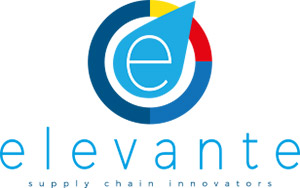EMPIRIC

Sviluppo delle strutture multimodali, portuali, delle idrovie e ferrovie nell’Europa
Project start date: 2009-03-01
Project end date: 2014-02-28
Description:
The Northern Adriatic region, going clockwise from Rijeka/Koper to the Emilia Romagna region coast represents the Southern terminal of the Adriatic Baltic transport corridor. The relevance of this corridor increased in the last years because of the economic growth of the Central European regions and with this connected continuous increase in transport demand. However the transport supply has been mainly generated by road as the multimodal transport solutions were not able to satisfy this increasing demand, due to the lack of adequate infrastructures (especially railways) and competitive services to reach these new markets. This consequently had a negative impact on environment and transport sustainability. Moreover, the Adriatic ports lost part of their competitive ground, being the closer point that the freight flows going to the Central Europe area could reach by sea. This has encouraged partners along the corridor to start working together with the aim of raising the awareness and attracting the attention of policy makers on the need of improving the infrastructural network in this region and providing more efficient multimodal services. Starting from this point, the EMPIRIC project aims at providing transport operators and multimodal logistics service providers with instruments and the framework conditions to support the investments in new multimodal services for the programme area. In particular, the project will contribute to the preparation of investments and the definition of common tools to enhance the attractiveness of multimodal transport services and infrastructures linking these regions. Given the economic ties and also the scale of the area the local approach is not adequate to provide satisfactory solutions to these issues and therefore the transnational approach has been adopted.
Achievements:
The EMPIRIC project that aims at providing the framework conditions to support investments in new multimodal services and defining common tools to enhance the attractiveness and competitiveness of multimodal transport in Central Europe now goes from theory to practice: Between August and November 2012 six impact analyses were implemented for a better understanding of social, economical and environmental externalities of the realization of new infrastructures and new multimodal services. The results of the first phase helped the verification of the concrete need of new services and infrastructures, the results of the second one analyzed the sustainability of new investments evaluating their positive and negative impacts. “A big step towards coordinated development of sustainable multimodality in Central Europe!” The project started in 2011 with the analysis of the goods flows in the programme area in order to identify the categories of goods and economic relations which can foster modal shifts. This led to the development of a GIS tool offering detailed information on multimodal platforms in Central Europe, an impact analysis of new multimodal services and platforms and the analysis of incentives on national and European level. Now, and in order to further enhance a greener concept of multimodality, EMPIRIC has analyzed the potential alternative modes to road transport. In particular, every region involved in EMPIRIC delivered a specific report on inland navigation and implemented business analyses for the setting up of new rail services. The reports on inland waterways in Central Europe now serve as a good basis to share different ways in organizing inland navigation and the related services and thus lead to a better focus on future investments. Specific attention has been dedicated to ICT tools and the elaboration of a River-Information System (RIS). Especially for the navigation on the PO River such a RIS is essential and knowledge and competences from Austria as a prerequisite for a successful implementation were utilized in a perfect way. Empiric is now working with NAPA (North Adriatic Ports Association) in order to help the improvement of an ICT tool to be used as single window of the different ports. Finally a report on incentives that could permit a concrete implementation of services was set up and a position paper about the use of incentives have been developed through the collection of more than 200 logistic operators and enterprises in Central Europe Region.
Partners
Lead Partner: Autorità Portuale di Venezia
TINA VIENNA Urban Technologies & Strategies Ltd.
Luka Koper, port and logistic system, d.d.
Institute for Transport and Logistics Foundation (ITL)
Pannon Business Network Association
Institute of Logistics and Warehousing
Consortium for the development of Polesine
Consortium for the Industrial Development of the Aussa-Corno Area
Austrian Mobility Research FGM-AMOR gem. GmbH
Agency of East Lombardy for Transports and Logistics
Institute of Economics – University of Information Technology and Management in Rzeszow
City of Nuremberg / Department for Economic Affairs
CityPlan Ltd.

